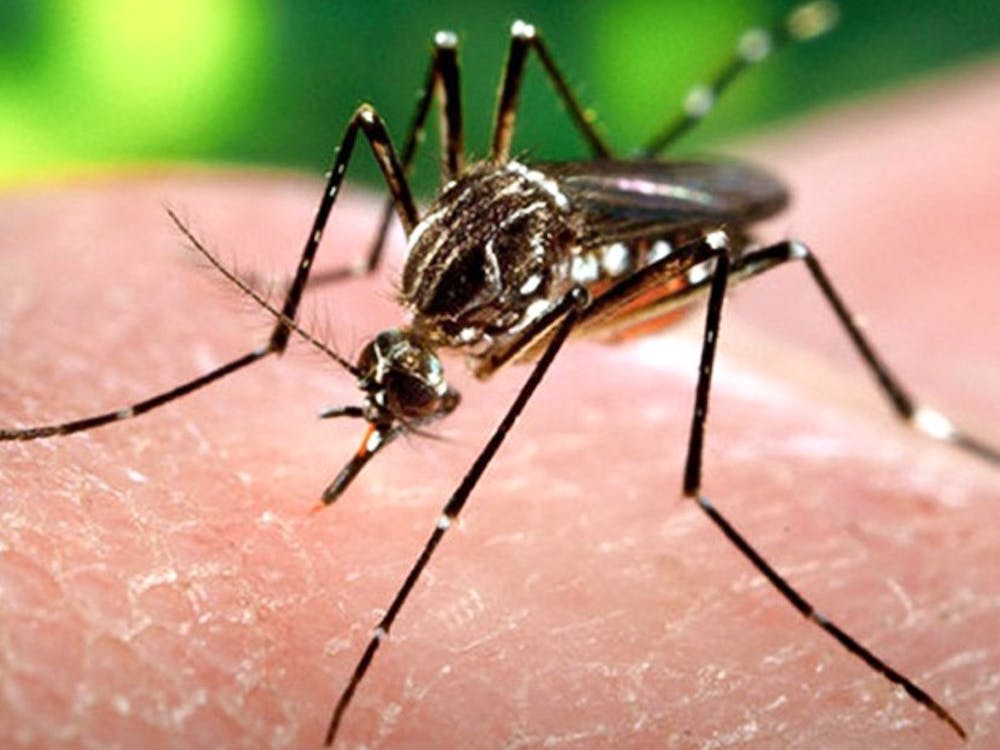Ashley St. John, assistant professor in the Duke-NUS Medical School, was part of a research team that discovered a drug to prevent dengue fever from turning deadly.
Dengue, a mosquito-borne illness found in many of the world’s tropical and subtropical regions, infects about 400 million people a year, according to the CDC. For most, it is a temporary ailment consisting of muscle aches, a rash or bruising and a rise in body temperature, but St. John noted the disease causes life-threatening internal bleeding in about 5% of those infected.
“We’re cautiously optimistic,” St. John said. “Because dengue is a multilayered problem, we know that there are still other factors we have to worry about. But we think that it can be important to start teasing apart these mechanisms.”
St. John is one of the authors of a recent study that outlines the mechanism that causes this bleeding and identifies a drug that may be able to prevent it. Dengue becomes life-threatening when patients experience a drop in platelet levels, internal bleeding and “blood leakage into the organs” at the time when they should be recovering from symptoms, she added.
This leads to a condition called hypovolemic shock, in which blood volume decreases so much that organs begin to fail. St. John and her team recently discovered the reason why dengue causes this internal bleeding.
“What we found is there are little scissor-like enzymes in the body called proteases that cut up the junctions between blood vessels,” St. John said. “In particular, one protease, called Tryptase, goes too far and causes the internal bleeding.”
Tryptase is a host enzyme created by the human body that can be released as a reaction to viral infection, antibodies in the blood or even allergens. It is correlated with the level of dengue present in a patient, along with other factors, St. John said.
The team created a drug designed to reverse this effect—to reduce the release of Tryptase—and treat the vascular leakage. They tested this through experimental studies of mice. In order to confirm that high levels of tryptase cause hypovolemic shock in humans with dengue, they also observed several human patients.
Both initiatives were a success: the team established a correlation between Tryptase and dengue-related internal bleeding. The drug they created worked to reverse the life-threatening symptoms.
The lab is currently attempting to determine whether a genetic predisposition to higher Tryptase levels causes severe symptoms, a question that St. John said she was particularly excited to explore.
St. John said that her team is interested in performing a clinical trial to ensure that the drug is safe in humans before providing it to high-impact areas. It has been approved for use in Japan but not in the United States.
The breakthrough could have implications for the treatment of other diseases, she said, as dengue is “very closely related” to viruses like yellow fever, West Nile, Zika and Japanese encephalitis.
The potential impact of these discoveries is “closer to home than we realize,” St. John explained, even though dengue is currently rare in the United States. In particular, climate change could cause shifts in the populations of tropical mosquitos, causing the disease to spread more rapidly beyond subtropical regions in much the same way that Zika and West Nile have recently spread in the United States.
“Every year a lot of travelers bring dengue back to the [United States], and it’s just a matter of time before there’s sustained transmission,” she said.
Get The Chronicle straight to your inbox
Sign up for our weekly newsletter. Cancel at any time.

